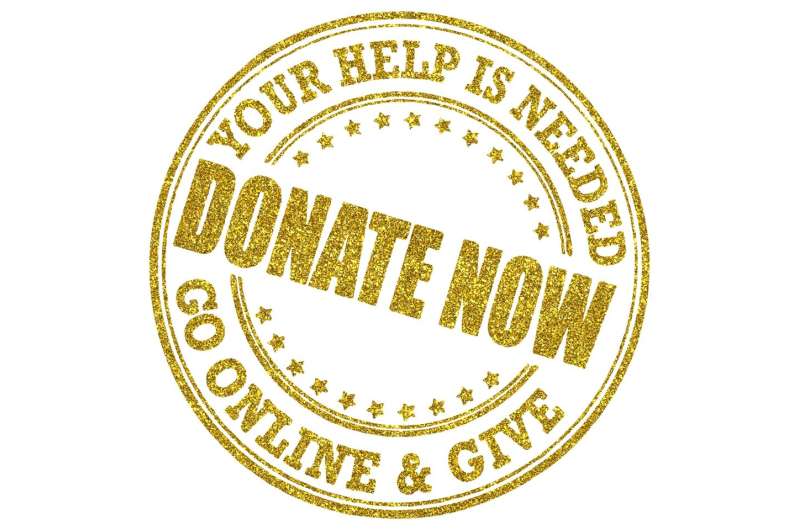This article has been reviewed according to Science X's editorial process and policies. Editors have highlighted the following attributes while ensuring the content's credibility:
fact-checked
peer-reviewed publication
trusted source
proofread
Rethinking role of charity in cost-of-living crisis

University of Queensland research has found a direct link between levels of government income support and people's need for charitable assistance.
Lead author Dr. Christine Ablaza from UQ's Life Course Center said the study investigated the number of requests for assistance made to St Vincent de Paul and The Salvation Army in Queensland during the series of additional COVID-19 income support payments made by the Australian Government in 2020 and 2021. The research is published in PLOS ONE.
"By analyzing the timing and varying amounts of these payments, we established a direct association between the level of government income support provided and people's need for charity," Dr. Ablaza said.
"Our findings showed that demand for charity assistance dropped markedly over the period covered by the additional COVID-19 income support payments, compared to pre-pandemic levels.
"Importantly, it was the sustained nature of the payments that really made a difference to people's need to ask for help.
"While the fortnightly Coronavirus Supplements unequivocally reduced demand for charity, there was little evidence that the one-off lump sum payments made a difference."
Professor Cameron Parsell from the UQ School of Social Science said the findings demonstrate that government does have the power to directly reduce the need for charity and indirectly, levels of poverty in the community.
"Sustained increases in income support payments would enable governments to move from providing 'band-aid' solutions to poverty, and re-direct efforts to tackle its structural root causes, rather than just addressing its symptoms," Professor Parsell said.
"Increased government income support payments, made directly to people in need to cover essentials such as food, clothing and rent, is a fairer, more transparent, and more efficient mechanism to promote self-determination and control over one's life.
"Our research suggests that charities have a more productive role to play in society through contributing to local communities, building solidarity and continuing to advocate for structural reform to address the determinants of poverty.
"The capacity that would be freed up by increasing government income support would also allow charities to offer better assistance to other vulnerable groups, such as refugees, who may fall through the cracks of the welfare system."
More information: Christine Ablaza et al, Increases in income-support payments reduce the demand for charity: A difference-in-difference analysis of charitable-assistance data from Australia over the COVID-19 pandemic, PLOS ONE (2023). DOI: 10.1371/journal.pone.0287533
Journal information: PLoS ONE
Provided by University of Queensland




















